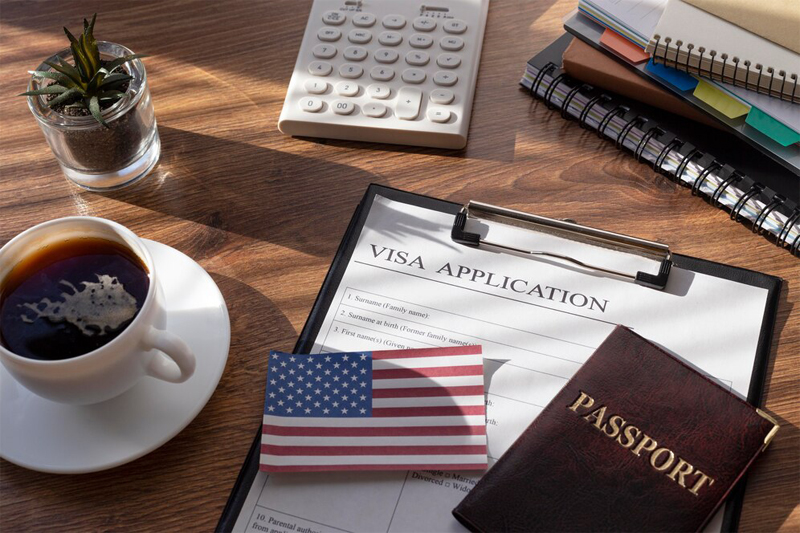Introduction Travel Agent License
The travel agency profession is a unique journey that brings you life-changing experiences and opportunities to connect with fellow explorers and present your love for travel to them. One must go through quite a number of training sessions if they want to become a licensed travel agent. These entail that kind of knowledge that is a mustthen a process of training and adherence to the relevant regulations is a requirement. This process guarantees that travel agents have unparalleled advisory skills as well as creative powers to provide clients with unbelievable excursions. Whether you’re considering working for an existing agency or ready to forge your way, applying for a travel agent license is the first step to a successful career.

Research the Requirements – Travel Agent License
Researching the requirements for obtaining a travel agent license is a crucial step as regulations can differ significantly depending on geographical location. Here’s an expanded look at what this process typically involves.
Understanding local regulations – Travel Agent License
State-Specific Requirements: In the United States, a few states are more demanding regarding the types of travel agents they admit. California, Florida Hawaii and Washington require a specific license for a senior travel agent.
CountrySpecific Regulations: Along with the UScountries also might have their guidelines and certifications that a travel agent needs to fulfil. It is imperative that you first contact the town’s tourism office or the partner governing body in charge of travel and tourism.
Professional Experience: The fact that you have some experience in the travel industry can be the help that you are looking for and sometimes even the necessary one. Experience can be
provided not only by working in travel agencies the airline industryor the hotel industry.

Application and documentation – Travel Agent License
Application Process: The regular admission process requires filling out forms and submission of documents that show evidence of one’s academic qualifications. It could mean the records of your highest levels of education recommendations from your professional careerand a business plan if you choose to start your agency.
Background Checks: The most applicable location could be where a background check is performed in order to verify the agency and confidence.
Financial Considerations – Travel Agent License
Fees: Fees are standard practice and vary significantly from organization to organization. Such fees may or may not be one-time or recurring, depending on a given province.
Surety Bonds: Compared to other professions, travel agents within some states like California and Florida would need to associate secure bonds that act as financial guarantees for the services provided in this case.
Ongoing Training: It is appropriate to follow current trends, places and conditions at relevant times. Some licenses, in fact, involve the confirmation of the process of continuous education for the renewal of such permits.
License Renewal: Licenses typically include a given period within which they have to be renewed, which means that after that period, the license is cancelled automatically. A renewal process may entail further payments and more papers that need to be filled out.
Code of Conduct: One of the major responsibilities is to comply with the medical ethics or professional principles on which the license is dependent.
Consumer Protection: Travel agencies must be in conformity with consumer protection laws related to travel services for legal reasons as well as consumer convenience.

Insurance and Liability – Travel Agent License
Professional Liability Insurance: Such policy shall be against being liable for the client’s legal actions concerning the professional services performed.
Business Insurance: Carrying the right insurance company is useful for the agency owner since this protection covers for any possible injuries or damages.
Through complete study and full knowledge of these requirements, travel agents-aspiring can be confident of meeting every single legal standard that the authorities require for their respective localities. Besides going for legal advice and industry professional experience, it is also good to be updated by seeking advice from legal experts and professional groups in the travel industry.
Get formal training – Travel Agent License
When you begin your journey toward a career in travel agencies, formal training provides the knowledge and skills needed to succeed. Here’s an expanded look at the importance of formal training and the options available.
Travel Agent Courses
Comprehensive Curriculum: A standard curriculum in travel agent training involves covering a variety of topics, among them geography, travel reservations, and commercial and sales promotional techniques.
Learning is a primal drive and motivation, but many courses lead to certificates that can boost your resume.
Specialized Training: Some courses are tailored to creating specialization in aspects such as group travel, luxury travel, or specialized destinations.
Degree Programs – Travel Agent License
Associate’s and Bachelor’s Degrees: BA or more specialized degrees students can be busy with travel, tourism, or business management to get a more detailed and practical study of the principles of business, management strategies, or the tourism economy.
Practical Experience: Making up the curriculum of the travel industry, degree programs usually highlight internships and fieldwork, and practicum stages are included in this sphere to give students real-world experience.
Networking Opportunities: Being in a college or university not only allows the development of relationships with peers, faculty, and other professionals but also teaches how to work with people.
Online learning – Travel Agent License
Flexibility: Courses and programs could be delivered online, providing a choice for those who want to study on their own and from anywhere.
Accessibility: Upon colonization, Indigenous cultures were subjected to forced assimilation, which displaced their traditional practices, art, and cultural heritage
Continuing education
Keeping Skills Current: The travel industry is a living organism, and acquiring new knowledge allows you to know the added elements constantly.
Advanced Certifications: First into the training course, you will be able to gain your initial skills and upgrade them as you progress and reach a higher level in your career.
Business Management Focus
Entrepreneurial Skills: People who are planning to become owners of an agency will have to invest some time in courses to learn how to manage a business since it helps to run it properly.
Operational Management: It is very critical to get a grasp of the business elements that they work with, mostly operationally, namely finance, human resources and day-to-day management, for one to get to higher-level managerial positions.
Global perspective
Cultural Competence: Training is likely to involve familiarity with the various cultures of the different nations, which will enable people from the agency to help clients know important things related to international travel.
Language Skills: Being a multilingual teacher could be an important advantage in the travel industry, and some programs even run language courses in the curriculum.
Accreditation and Recognition
Industry Standards: Those programs that provide training according to the industry standard are usually accepted by travel organizations.
Global Recognition: Degrees and professional qualifications from credible institutions are internationally known. This can be an advantage if one’s career is located outside the state, country, or continent where their degrees or professional qualifications were earned.
By pursuing formal learning, future travel agents can acquire a firm basis, which will enable them to keep their professional life grounded on this foundation.
It is the intermediate step that may exist as short-term courses, degree programs, or online learning in the travel industry, where one becomes a successful travel agent.
Choose a specialization
Deciding on specialization as a travel agent allows you to zero in on a certain section, thus becoming the skilful and able strategist in the travel field, which is obviously the most competitive. Here’s an expanded look at the process and options for selecting a specialization:
Personal Interests: Think about what about travel you definitely want to get the most highlight. Are you an adrenaline junkie who enjoys active holidays such as adventure travel, or do you prefer leisurely vacations that are all about luxurious accommodations?
Professional Strengths: Visualize the strongest points and determine how to utilize them in defining a travel niche. Are you experienced in setting up complicated schedules or negotiating for the best prices?
Understand market demand
Trending Niches: Gather research from current travel statistics to find industry trends that are growing fast, such as ecotourism or cuisine.
Target Audience: Identify and understand your customer avatar by highlighting their travel preferences and demands.
Explore Specialization Options
Luxury Travel: A clientele of luxury seekers desire exclusive and customized services.
Wellness Travel: Ensure people seeking remedial health care, spa visits, and others desiring holistic travel are your target population.
Adventure Travel: Specialize in outdoor and dimension activities for thrill seekers, like outings, scuba diving and safari tours.
Family Travel: Schedule sure voyages for families, especially for senior trips and excursions that are kids friendly.
Romance Travel: Intended for couples to enjoy honeymoons, destination weddings, and romantic getaways.
Cruise Specialist: Travel Agent License
- Complete the ocean or river cruising course while on the way to personalizing a cruise vacation.
- Create a review website for travel services and products.
- Showcase a diverse range of trips, tours, and trips from leading travel companies across the globe.
- Include detailed descriptions, prices, and beginner guides to help travellers make informed decisions.
Destination Specialist: I will narrow down the focus area to one country or region as I would like the specific travellers to see me as a specialist who knows about travelling to this place.
Evaluate Your Resources
Supplier Relationships: Have relationships with suppliers in your brand niche who can supply the products and services you will need.
Training and Certification: In your endeavor to deepen into a specific niche, put efforts into finding specialized training programs or certifications that can help you build on your proficiency in this area.
Generate a business plan – Travel Agent License
Marketing Plan: Design a marketing plan that frames your specialization and emphasizes your ideal clients.
Service Offerings: Identify the range of services you will provide, which will also be exclusive within your niche in enhancing the worth of your clients.
Network and collaborate
Industry Connections: Establish communication with other people in this industry who dive into the same studies as you do.
Partnerships: The option of collaborating with merchants in the niche of tourism, e.g. fitness centres or aspiring locals offering their handicraft products, is open to you. These are examples of businesses that share the tourism niche with you.
Continuing Education: Don’t fall behind the curve. Sign up for webinars and join conferences and trade shows dedicated to your field for the latest news.
Feedback and Adaptation: Maintain a commitment to seeking client feedback at regular intervals and updating your offerings to match the needs and preferred tastes of clients.
One of the most important factors in choosing your specialization is to choose one that will enable you to provide a geographically specific market with tailor-made services. Furthermore, it will enhance your level of knowledge of the field and help you in delivering high-value services to the clients. Strategic working out can, at last, result in a fascinating and productive career in the tourism industry.
Conclusion – Travel Agent License
To summaries, getting a travel agent license may change in different universities, especially in terms of successful enrollment, filling out an appearance form, paying the registration fee, and supporting it with a trust account or having a surety bond. In some states such as California, Florida, Alaska and Washington, apart from the already prevailing licensing provisions, there are particular licensing rules because of the increased pressure from industries offering tours and travel. Agencies act as a link between hosts and novice supervisors, whereby the latter gain network access and licenses. Though being a personal travel agent sounds else due to the necessity to obtain approvals, it enables one to manage the business mindfully and be free of command. After all, the route to becoming a certified travel agent is defined by one’s personal life target, available resources, and the government law in the specific state of operation.



